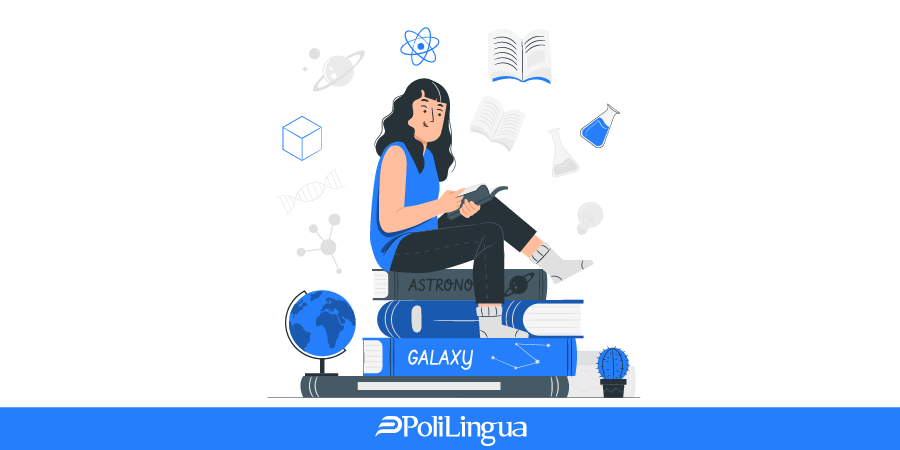
How to translate a book: all key questions answered
Once your book is published, why not offer it to an audience that you hadn't imagined reaching early on: people who speak a foreign language or two, for example. Of course, to justify this translation, it will be necessary to validate the performance of the book in the country of origin and its relevance to the target market and to future readers.
If these criteria are met, then you can start the procedures with your editor, who will guide you on the first actions to be carried out.
If you made it this far - congrats and let’s discuss the next phase which is the translation of your book into another language, and how to do it as qualitatively as possible, which means ensuring high quality and avoiding errors and distortions.
What are the important points to consider when translating your book?
The key steps of a book translation process are relatively simple: beyond understanding the text profoundly, translating it part by part, then overall perfecting, it is very important to mark out your work by certain rules and respect them.
This will save you from having problems when brushing up your translation, but above all from going back over your work for some avoidable oversights.
Is translating your book profitable?
The answer to this question is all about strategy. No matter what genre your book is - professional book, non-fiction, etc - or what language it was written in originally - English, French, Spanish, etc - keep in mind that we are talking about no-nonsense things. It is not how good it is, but how much people want to see its quality translation on the shelves of bookshops around the world.
If the book has found readers in your home country, if reviews are good, then a translation work may be profitable.
If you have great difficulty in attracting readers to online bookstores, and your sales come mainly from your most loyal fans or signing sessions, then translating your book will help you first and foremost increase your author's credibility and reinforce the seriousness of your approach, but not to sell more.
Translating a book doesn't always have to be profitable. It can also be an investment in your author’s credibility.
If you work with a publisher, you can ask them to sell the translation rights overseas, or reclaim your rights to translate yourself.
Which languages to get your book translated into?
The first question to ask yourself is in which country does my book be of interest, and where can I promote my book? Thus, you will favor the countries whose language you speak. Publishing your book without promotional work rarely brings results.
Then ask yourself which countries are receptive to your story, guide, or book.
Finally, focus on the countries whose online bookstores are the most developed, and where it is possible to distribute easily (in self-publishing for example), namely: the United States and the United Kingdom, Spain and Germany.
Books translated into English enter an ultra-competitive market, with many titles and releases. The advantage: the market is vast.
You can focus on Brazil (Portuguese), China, or Russia, where people historically like reading books; but it is not easy to publish in these countries.

The relationship with your publishers
What is important to consider is the relationship you have with your publisher, the quality of their advice, and the structure of the company.
It is from these elements, and after having discussed your plans with them, you will be able to know if they follow you in your adventure or not. If their answer turns out to be negative, you can still look for a foreign publisher yourself, but it could be tricky.
Potential legal issues
Even if you manage to start the project with your publisher, be careful of the legal aspects. The publishing houses will collaborate together (yours and that of the country of destination), but the entire collaboration will be governed by one (or more) contract(s) making it possible to frame the commercial relationship.
All rights management is at the heart of a triangle made up of the author and the two publishing houses (and even the translator), to which special attention must be paid. This is one of the most important moments of your future collaboration and your publishing project abroad.
You can also look to sell the translation rights to your book, rather than translating yourself. You will be able to go through an organization of resale of rights, for the sale, or the ‘licensing’ your books.
So take the time to consider these aspects and possibly get help from experts on the issue.
Which translator is best for you?
After all the publishing and legal stuff, another question pops up.
What type of translation should you turn to? Should you ask your friends for help? The people you know personally? Professional book translation services? Where to find them and how to pick the one who is the perfect fit for your book? Let's look into these issues one by one.
Is it worth translating by yourself?
This should only be done if you are bi-lingual. But this guarantees nothing. You will probably start by copying and pasting your text in an online translator, on Google Translate or DeepL, then you will edit the text manually. Be very attentive and patient, this work takes a lot of time. In any case, never settle for the translation from the online tool, it will be of poor quality. Artificial intelligence is not yet good enough at translating sophisticated texts. Think of your reader: do you want to offer them an automatic translation of the content that you have spent so many hours producing? Don't take the risk of damaging your reputation with a bad translation.
How to choose the right translator?
The choice of the translator is a decisive step towards the realization of the project. In addition to reassuring all parties involved, it will guarantee the quality of the expression of your ideas for your new audience.
It is therefore essential to choose a professional, experienced person, but with whom you will also have a good relationship for your future regular interactions.
In the end, the choice of a translator will be up to the foreign publishing house, however, you can certainly provide your advice and suggest a person or a firm in particular. They will obviously take your opinion into account.
Freelance translators
This is an efficient way. You will find translators on service marketplaces, such as Upwork. In this regard, do not hesitate to ‘post’ an advertisement requesting a translation, then to evaluate the profiles which respond to your advertisement.
Prefer someone who has already translated books of the same literary genre and asks for references. Each of these platforms has its own mode of operation, choose the website that suits you best.
Communication with a freelance translator is essential. Take the time to explain the context of your book, its challenges, its specificities. Freelancers usually also use an online book translator, so an automated tool, to save time, then go over the entire text by hand.
Know the price of a quality translator's services. You will try to avoid sloppy translations, which always trigger very negative comments.
A professional and experienced translator
The most difficult thing in the author-translator relationship is to accept that translation is a profession in its own right, carried out by professionals.
You must therefore trust the quality of the work done (even if taking a look at the translation is not okay).
This therefore also plays a role in the question of choice. Just because a person speaks a language correctly or lives in the country does not mean that they can translate a book. The profession of a translator requires following rules, being trained to be efficient, and provide quality work. To deprive yourself of a professional translator ultimately amounts to downplaying its importance and accepting a lower or even poor quality of translation.
You should therefore consider working with a translation expert, who will know how to reassure you by their previous achievements (references) and with whom you can project a healthy professional relationship.
A book translation services: the right idea?
More than a professional translator, the translation firm allows you to benefit from group expertise, made up of several experts who can work on the same project.
A book can thus be divided into chapters on which different translators can work. The main translator will be the referent and will allow homogenization of all the content.
This type of composition saves significant time and makes it possible to benefit from the expertise and opinion of several people. You, therefore, benefit from more objectivity in the translation and the meaning to be given to certain passages.
With a freelancer, such as an agency, be sure to write a contract, and make sure of the following:
- Copyrights remain yours,
- The deadlines are realistic,
- The initial layout will be respected,
- If modifications are necessary, the person can take back the book and make them,
- The translation will be carried out entirely by the same person (the differences in style would be very visible).
Even if the writing phase is long and tedious, you should not try to save time (or money) on the translation, since it must be a faithful reflection of your work with your international audience.







